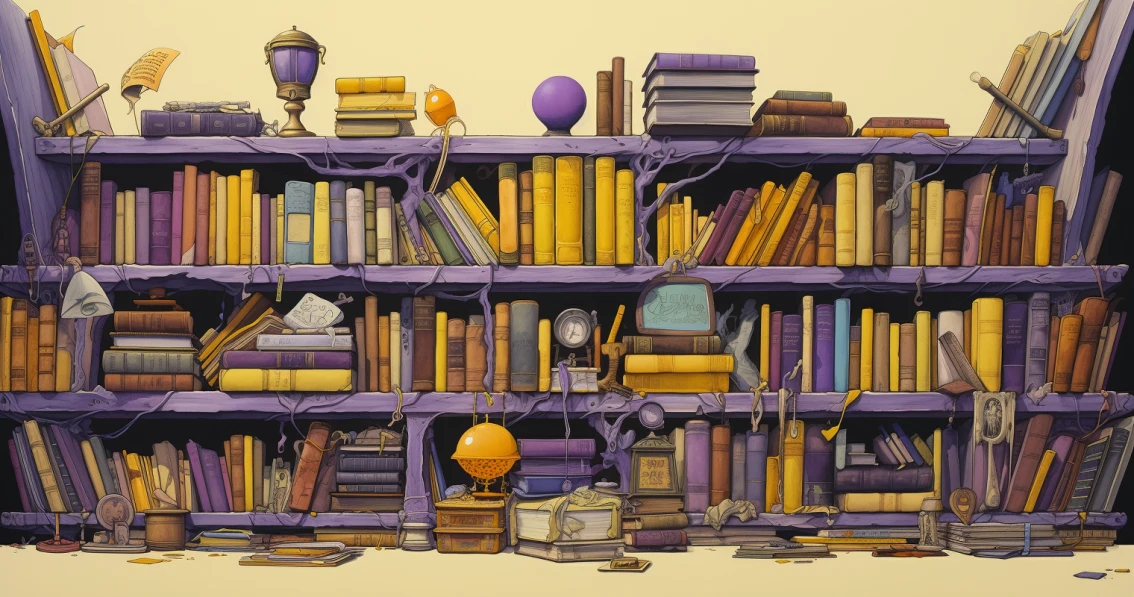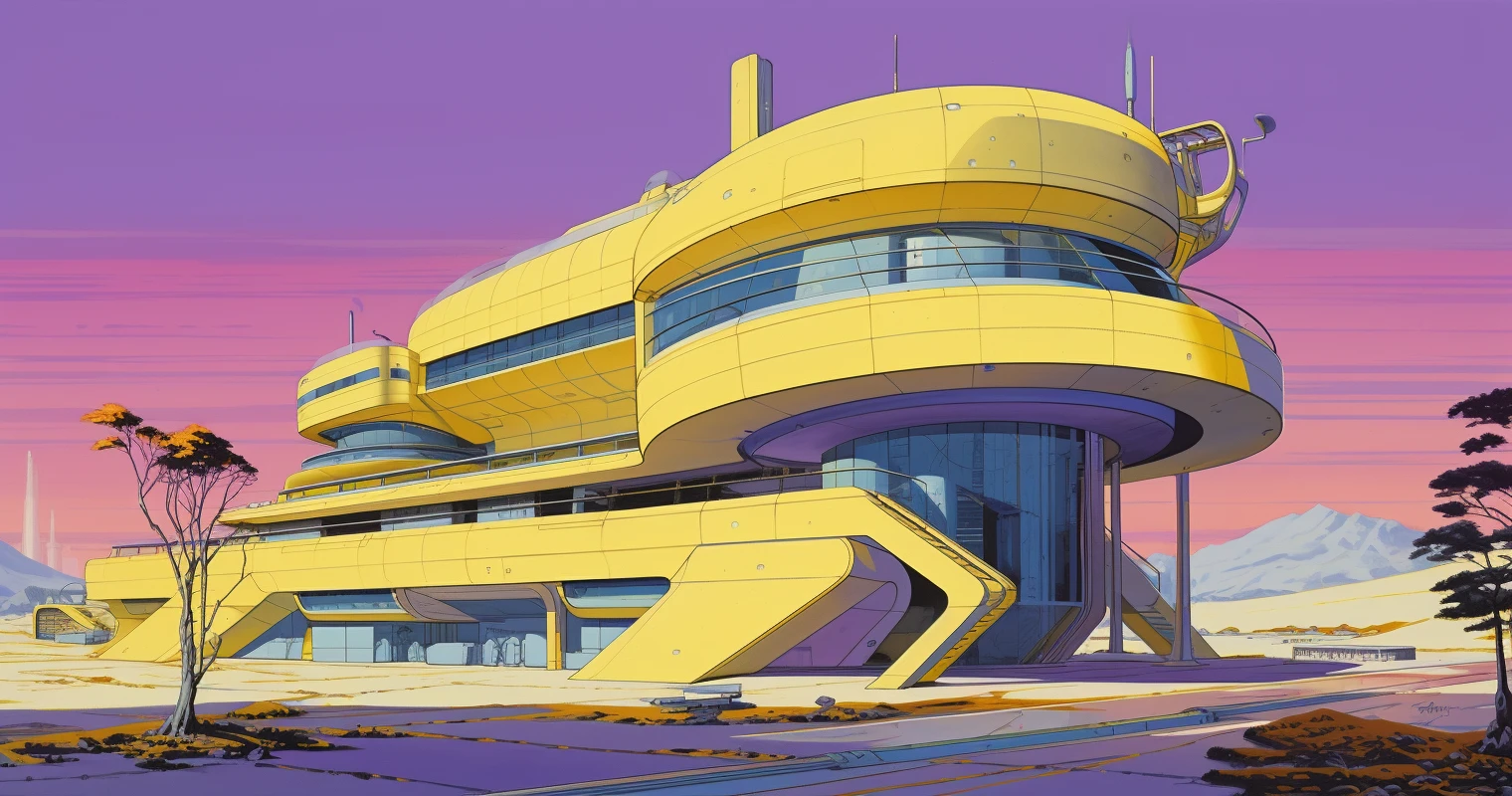Pursuing a game development degree means immersing yourself in a discipline that combines art, storytelling, and technology. It encompasses various stages, from conceptualizing a game idea to designing, programming, testing, and ultimately publishing the game.
If you’re still on the fence about whether getting a game development degree is a good idea for you, this article will help you make that decision.
I go over everything – from curriculum and types of game development degrees to the best universities and career opportunities.
What to Expect in a Game Development Degree Program?
Let’s start with the basics – this is what you can expect from a game development degree program.
Curriculum and Courses
A typical game development degree program will cover a broad range of subjects.
In the initial years, you’ll take foundational courses in computer science, mathematics, and basic game design. You can also expect to read many game development books. As you progress, you’ll delve into more specialized areas like advanced programming, 3D modeling, AI for games, and game project management.
Expect a mix of theoretical knowledge and practical hands-on projects.
Skills You Will Develop
Throughout your studies, you will develop a diverse set of skills.
Critical thinking and problem-solving are at the heart of game development. You’ll learn to approach challenges creatively and logically.
Collaboration and communication are also key, as you’ll often work in teams, much like in the professional world. Technical skills in programming and gaming software tools will be honed, alongside creative skills in design and storytelling.
Projects and Portfolio Building
Your degree program will likely include numerous projects where you’ll create your own games or parts of games.
These projects are not just for grades; they are crucial for building a portfolio. A strong portfolio showcasing your work is essential when you start looking for jobs in the industry. It demonstrates your abilities and creativity to potential employers.

What You’ll Learn About in a Game Development Degree Program
In a game development program, you will learn about:
Game Design
This is where you start with the basics, learning how to create engaging gameplay mechanics, storylines, and levels. You’ll understand what makes a game fun and how to keep players engaged.
Programming
You’ll dive into coding, learning languages like C++, C#, and Python. Programming is the backbone of game development – it enables you to create the game’s functionality and behavior.
Art and Animation
Games need visually appealing graphics and animations. You’ll explore 2D and 3D art, character design, and animation techniques to bring your game’s world to life.
Sound and Music
Audio elements are crucial for immersion. You’ll learn how to create and integrate sound effects and music that enhance the gaming experience.
Game Engines
Game engines like Unity and Unreal Engine are platforms where you’ll build and develop your games. You’ll become proficient in using these game developent tools to design, develop, and optimize games.

The Game Development Industry: What to Expect
Getting a game development degree has many benefits. Mainly, it makes it easier to get career opportunities. Here’s what you can expect from working in the game development industry.
Career Opportunities
With a game development degree, various career paths open up.
You could become a game designer, programmer, artist, or even a producer.
The gaming industry is vast. It encompasses mobile games, console games, PC games, and even emerging areas like virtual reality (VR) and augmented reality (AR). Each role in the industry requires different strengths, so you can find your niche based on what you enjoy and excel at.
Game Development Career Paths
Graduates with game development degrees can pursue careers in:
- Game design
- Software engineering
- Animation and art
- Project management
- User experience design
- Virtual reality development
- Educational game development
Working in Teams
It’s important to know that game development is highly collaborative.
In most settings, you’ll work in multidisciplinary teams where each member brings their expertise to the table.
You’ll need to communicate effectively and often compromise to bring a project together. This team dynamic is one of the exciting aspects of game development, as you get to see how different creative minds contribute to a shared vision.
Staying Updated
The gaming industry evolves rapidly with new technologies and trends. Staying updated with the latest developments is crucial.
This could mean continuously learning new tools, keeping up with gaming trends, and even playing a variety of games to understand what makes them successful.

Is a Game Development Degree Right for You?
If you’re still unsure whether you should pursue a game development degree, see if you connect with these core aspects of game development.
Passion for Games
Firstly, if you want to get into game development, you should have a genuine passion for games. This passion will keep you motivated through the challenging parts of your studies and career.
Enjoying the process of playing and analyzing games will make your journey more fulfilling.
Balancing Creativity and Technical Skills
Game development requires a unique balance between creativity and technical prowess.
If you enjoy coding and solving complex problems but also have a love for art and storytelling, this field might be a perfect fit for you.
Preparedness for Challenges
Game development can be demanding, with tight deadlines and sometimes long hours, especially when approaching a game’s release date. Being prepared for these challenges and maintaining a passion for the craft will help you thrive in this dynamic field.
Types of Game Development Degrees
This is a list of the most common game development degrees.
1. Game Design Degrees
These degrees focus on the creative and conceptual aspects of game creation.
Bachelor of Science (BS) in Game Design:
- Curriculum: Emphasizes game mechanics, level design, storytelling, user experience, and player psychology.
- Skills: Game concept development, prototyping, narrative design, and playtesting.
Bachelor of Arts (BA) in Game Design:
- Curriculum: Similar to BS in Game Design but often includes a broader liberal arts education.
- Skills: Creative writing, digital storytelling, and visual design.
Master of Fine Arts (MFA) in Game Design:
- Curriculum: Advanced studies in interactive storytelling, complex game systems, and collaborative design processes.
- Skills: Leadership in game projects, advanced design theory, and industry collaboration.

2. Game Development/Programming Degrees
These degrees emphasize the technical aspects of game creation.
Bachelor of Science (BS) in Game Development:
- Curriculum: Focuses on game engines, software development, algorithms, and graphics programming.
- Skills: C++/C#, Unity/Unreal Engine, AI programming, and physics simulation.
Bachelor of Science (BS) in Computer Science with a focus on Game Development:
- Curriculum: Combines core computer science principles with specialized game development courses.
- Skills: Software engineering, systems design, and game-specific programming techniques.
Master of Science (MS) in Game Programming and Development:
- Curriculum: Advanced programming topics, real-time rendering, and complex system integration.
- Skills: Game engine architecture, network programming, and performance optimization.
3. Game Art and Animation Degrees
These degrees are tailored to the visual and artistic elements of game development.
Bachelor of Fine Arts (BFA) in Game Art:
- Curriculum: Concentrates on 2D/3D art, character modeling, environment design, and animation.
- Skills: Digital sculpting, texture mapping, rigging, and lighting.
Bachelor of Arts (BA) in Animation with a focus on Game Art:
- Curriculum: Broad animation techniques with a focus on interactive and game-specific applications.
- Skills: Storyboarding, character animation, and motion capture.
Master of Fine Arts (MFA) in Game Art and Animation:
- Curriculum: In-depth study of advanced animation techniques and visual effects for games.
- Skills: Artistic direction, advanced modeling, and procedural animation.
4. Game Production and Management Degrees
These degrees cover the business and project management aspects of game development.
Bachelor of Science (BS) in Game Production:
- Curriculum: Focuses on project management, team leadership, and the business of game development.
- Skills: Agile methodologies, budgeting, and team coordination.
Bachelor of Business Administration (BBA) with a focus on Game Management:
- Curriculum: Combines core business principles with industry-specific management strategies.
- Skills: Marketing, strategic planning, and business operations for game companies.
Master of Business Administration (MBA) with a concentration in Game Production and Management:
- Curriculum: Advanced business practices tailored to the gaming industry.
- Skills: Entrepreneurship, product lifecycle management, and business development.
5. Interdisciplinary and Specialized Degrees
These programs blend multiple aspects of game development or focus on niche areas.
Bachelor of Science (BS) in Interactive Media:
- Curriculum: Integrates elements of game design, development, and interactive storytelling.
- Skills: Cross-platform development, user experience, and interactive narrative.
Bachelor of Science (BS) in Virtual Reality and Game Design:
- Curriculum: Specializes in VR/AR technologies and their application in gaming.
- Skills: VR/AR development, immersive environment design, and sensory feedback systems.
Master of Science (MS) in Serious Games:
- Curriculum: Focuses on the use of games for education, training, and social impact.
- Skills: Educational game design, simulation development, and impact assessment.

List of Leading Game Development Degrees and Universities
United States
University of Southern California (USC)
Program: Bachelor of Science in Computer Science (Games)
Overview: USC offers a highly-regarded program that blends computer science and game design. The curriculum covers game development, software engineering, and interactive media, preparing students for careers in game design and development.
Link: USC Viterbi School of Engineering – BS in Computer Science (Games)
Rochester Institute of Technology (RIT)
Program: Bachelor of Science in Game Design and Development
Overview: RIT’s program focuses on both the technical and creative aspects of game development. Students gain skills in programming, design, and production, with opportunities to work on real-world projects.
Link: RIT School of Interactive Games and Media – BS in Game Design and Development
University of Utah
Program: Bachelor of Science in Games
Overview: The University of Utah offers a multidisciplinary program that includes courses in art, engineering, and game design. The curriculum is designed to provide a comprehensive education in game development.
Link: University of Utah – BS in Games
Savannah College of Art and Design (SCAD)
Program: Bachelor of Fine Arts in Interactive Design and Game Development
Overview: SCAD offers a program focused on game art, design, and development. Students can specialize in game development, interactive design, or a combination of both, with an emphasis on creative and technical skills.
Link: SCAD – BFA in Interactive Design and Game Development
DigiPen Institute of Technology
Program: Bachelor of Science in Computer Science and Game Design
Overview: DigiPen’s program merges computer science with game design principles. It prepares students for roles that require both technical expertise and creative problem-solving in game development.
Link: DigiPen – BS in Computer Science and Game Design
United Kingdom
University of Abertay Dundee
Program: Bachelor of Arts (Hons) in Game Design and Production
Overview: Abertay is renowned for its game development courses. This program focuses on game design, production, and the business aspects of the gaming industry, providing a comprehensive education for aspiring game developers.
Link: Abertay University – BA (Hons) in Game Design and Production
Staffordshire University
Program: Bachelor of Science (Hons) in Computer Games Design
Overview: Staffordshire University offers a program that covers game design, development, and production. Students learn to create games from concept to final product, with a focus on both the technical and artistic aspects.
Link: Staffordshire University – BSc (Hons) in Computer Games Design
University of Hertfordshire
Program: Bachelor of Science (Hons) in Computer Games Design
Overview: This program provides a balanced education in game design and development, with courses in game mechanics, narrative, and technical skills. Students work on projects that simulate real-world game development environments.
Link: University of Hertfordshire – BSc (Hons) in Computer Games Design
Canada
Sheridan College
Program: Bachelor of Game Design
Overview: Sheridan’s program focuses on the principles of game design, storytelling, and user experience. Students learn to create engaging and innovative games through a blend of technical and creative coursework.
Link: Sheridan College – Bachelor of Game Design
University of British Columbia (UBC)
Program: Bachelor of Media Studies
Overview: UBC’s interdisciplinary program includes a strong focus on game design and interactive media. It blends courses in media studies, design, and technology, preparing students for various roles in the digital media industry.
Link: UBC – Bachelor of Media Studies
Australia
Queensland University of Technology (QUT)
Program: Bachelor of Games and Interactive Environments
Overview: QUT offers a program that covers game design, development, and interactive media. Students gain hands-on experience with industry-standard tools and technologies, preparing them for careers in game development and beyond.
Link: QUT – Bachelor of Games and Interactive Environments
University of Technology Sydney (UTS)
Program: Bachelor of Science in Games Development
Overview: UTS’s program focuses on the technical and creative skills needed to develop games. The curriculum includes programming, game design, and project management, with opportunities to work on collaborative projects.
Link: UTS – Bachelor of Science in Games Development

Game Development Degrees Online
If you’re unable to physically attend a university, there are plenty of online game development degrees you can choose from.
Full Sail University
Program: Bachelor of Science in Game Design (Online)
Overview: Full Sail University offers a comprehensive online Bachelor of Science in Game Design. The program covers a wide range of topics including game mechanics, level design, storytelling, and the development of user interfaces. Students will work on projects that allow them to apply their knowledge practically, preparing them for various roles in the game industry.
Link: Full Sail University – BS in Game Design (Online)
Southern New Hampshire University (SNHU)
Program: Bachelor of Science in Game Programming and Development (Online)
Overview: SNHU’s online program focuses on the technical aspects of game development. Students learn to use programming languages such as C++ and Java, develop skills in software engineering, and gain experience with game engines like Unity. The curriculum is designed to equip students with the necessary skills to become proficient game programmers and developers.
Link: Southern New Hampshire University – BS in Game Programming and Development (Online)
Academy of Art University
Program: Bachelor of Fine Arts in Game Development (Online)
Overview: Academy of Art University provides an online Bachelor of Fine Arts in Game Development that emphasizes both the artistic and technical sides of game creation. The program includes courses in 3D modeling, animation, game design, and programming. It is designed to help students build a portfolio showcasing their creative and technical skills in game development.
Link: Academy of Art University – BFA in Game Development (Online)
Liberty University
Program: Bachelor of Science in Information Technology: Gaming Design (Online)
Overview: Liberty University offers an online Bachelor of Science in Information Technology with a focus on Gaming Design. The program covers game design principles, software development, and project management. It also integrates a strong foundation in IT, making it a versatile degree for students interested in both game development and broader IT roles.
Link: Liberty University – BS in IT: Gaming Design (Online)
University of Advancing Technology (UAT)
Program: Bachelor of Arts in Game Design (Online)
Overview: UAT’s online Bachelor of Arts in Game Design offers a curriculum that blends creative design and technical development. Students learn about game mechanics, story development, level design, and game production. The program is project-focused, allowing students to create a portfolio that showcases their game design skills.
Link: University of Advancing Technology – BA in Game Design (Online)
Final Thoughts on Getting a Game Development Degree
Whether you choose to get a game development degree is ultimately up to you.
While it’s possible to learn game development and even build a successful career without a degree, education certainly helps and can make that process easier and faster.







Comments